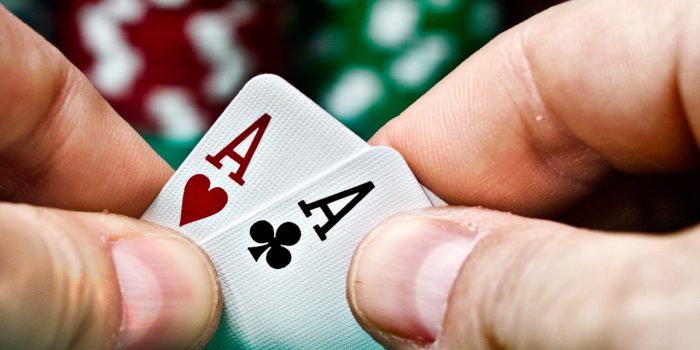Anytime someone talks about poker, they almost certainly emphasize the significance of playing position. Some even contend that it wouldn’t matter what cards you had if you were always in position because you could consistently outplay your adversary. However, that doesn’t mean you’ll constantly win; luck and strategies also play a role in helping a player.
Knowing the importance of position in Texas Holdem or any poker variant is crucial, as it will guide players on what they can or cannot do. If you are serious about the game, you should read more about this topic.
What is Position in Poker?
Regardless of the number of players, there are a few distinct positions at every poker table. The big blind, small blind, and button are the obligatory ones. There are up to nine poker positions, depending on the number of players.
- Small Blind and Big Blind
- Early position (Under the gun – UTG/UTG+1/UTG+2)
- Middle (Lojack, Hijack)
- Late (Cutoff, Button)
Positions in a poker game are one thing, but what does it mean to be in a position then? It implies that you are the last player to act after the flop. If you are on the small blind, you can never be in position due to the order of each betting round. Only the small blind and the button can have a position over you when you are on the large blind since the button never acts before the flop is handed.
Importance of Knowing Poker Positions
Details in Other Hands
The primary factor making position so crucial is that it gives you knowledge about your opponent that they don’t have about you. Being the last to move allows you to observe their decision before making your own. When playing live poker, you can watch the decision-making process and the final result, allowing you to spot lies in your opponent.
In addition, playing hands out of position is far more difficult because you never know what your opponent will do. You may improve your decisions on how to play your hand by playing as many hands as you can in position and using the information your opponents provide you with by acting first.
It enables you to take advantage of your rivals’ tendencies fully. For instance, you can bet every time they check and fold anytime they bet.

Photo by Comstock Images from FreeImages
Pot Control
Acting last on every post-flop street typically gives you more control over the pot size you play with. If an opponent checks and you want to play a small pot, you can check behind. If your opponent bets, you can simply call to end the hand.
If you wish to play a bigger pot, you can bet or raise when the action is on you. You can’t check while you’re out of position and trust that your opponent will check and give you easy access to the next card. You also cannot wager and be sure that your opponent would either fold or call you (thus keeping the pot small).
Ability to Bluff
Since you are assured to be in the post-flop position when you play poker from the button, you should play many more hands from there than anywhere else. Calling in position and seeing the flop is a terrific poker strategy. You get to see what your opponent does first and exploit any weaknesses they exhibit.
When your opponent checks, you can take advantage of this if they are a “fit or fold” sort of player by betting anytime they do. However, most skilled players know how effective a c-bet is and will place one on most flops, frequently for a small wager. The position becomes quite powerful in this situation.
Because flop bets are often minimal, you can call with various hands at a fantastic price to watch what happens on the turn. A scare card, a card that strengthens your hand or your range, or your opponent giving up on their bluff could all happen. By floating the flop, you maximize the chances of winning the pot on the turn if your opponent checks. You can fold your hand if you haven’t improved and have just bet a tiny amount on the flop if your opponent continues to gamble.

Photo by brand_x_pictures from FreeImages
Determining the Pot Odds
Let’s say you have a four-way hand with the poker cards k-Clubs and 10-Clubs, the flop is q-Diamonds, j-Diamonds, and 5-Clubs, and you are the second player to act.
The first player takes the lead with a bet of 500, with 1,500 in the middle. You want to call with your open-ended straight draw and watch the turn.
If you were the last to act, you would know your immediate pot odds; since you need only call 500 and are attempting to win 2,000, your odds are 4-to-1.
You cannot do this computation while players in front of you are still in action. You don’t know if the other two players will also call or if one of them will raise the stakes, forcing you to spend even more to stay in the game (making your pot odds potentially much worse).
If you were in a position to act last and knew your odds of winning the pot, you might know them in advance.
Conclusion
By knowing the positions in poker, you know how to play your strategies to prevent losing more than you can bet. Poker position matters as other aspects of the game are, so learn how you can improve your technique in any position by practicing. Go to GGPoker, the world’s largest poker room, and play any game that suits your skill. Sign up today!
If you are looking more sites of any country like-
.co.uk
.ca
.us
.au
.net
.nl
.fr
.de
.in
.com
.ch
co.in
.org
Email: [email protected]




